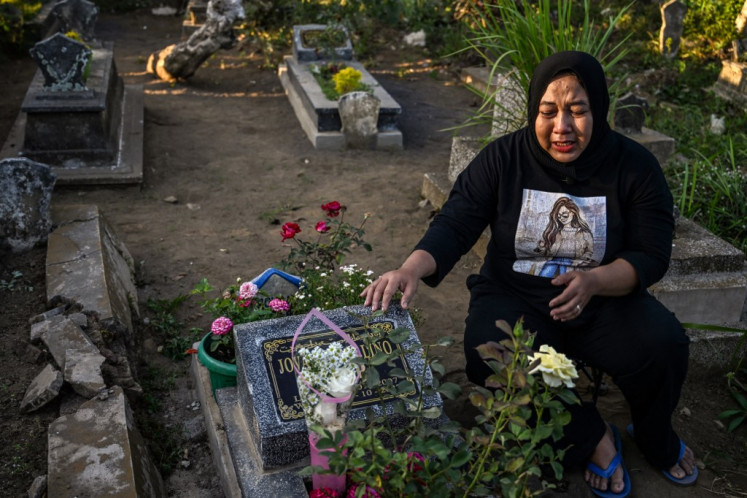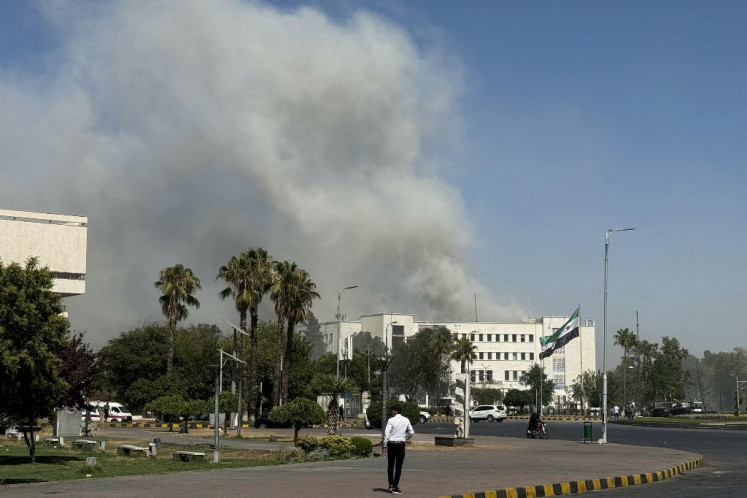Popular Reads
Top Results
Can't find what you're looking for?
View all search resultsPopular Reads
Top Results
Can't find what you're looking for?
View all search resultsIndonesia’s GDP growth to further decline in 2020: Moody's
Despite facing a slower growth scenario, Indonesia is expected to see no changes in its credit rating.
Change text size
Gift Premium Articles
to Anyone
I
ndonesia’s gross domestic product (GDP) is expected to grow by only 4.9 percent this year and further decline to 4.7 percent in 2020 — the slowest pace since 2016's fourth quarter — as weak commodity prices continue to hit the economy hard, Moody’s Investor Service says.
However, the growth is expected to slightly recover to 4.8 percent in 2021.
“We’ve seen some decline in commodity prices and as a result, slower economic growth and that has had a knock-on effect in terms of Indonesia’s economy,” Moody’s managing director and chief credit officer Michael Taylor said in Jakarta on Wednesday.
He went on to say that despite facing a slower growth scenario, Indonesia was expected to see no changes in its credit rating.
Moody’s upgraded Indonesia’s sovereign rating to Baa2 with a stable outlook on April 13, 2018. The rating, which is one notch higher than investment-grade rating, was granted on the back of a credible and effective policy framework to support macroeconomic stability.
“If you compare Indonesia to its rated peer group, it still looks pretty well-positioned for this rating. We don’t see upward or downward pressure in Indonesia’s credit rating at the moment,” Taylor said.
The country’s GDP growth stood at 5.02 percent in the third quarter of this year, down from 5.05 percent in the second quarter, as investment and exports plunged while household spending stagnated, Statistics Indonesia (BPS) data revealed.
The decline in commodity prices correlated closely to the banking sector, making it one of the key risks to Indonesian banks, said Moody’s analyst Tengfu Li.
“While commodity prices have recovered somewhat, the level of loan-at-risks is still elevated if you compare it to its peak in 2016,” Li said. “We are sort of watching this space closely because if the commodity cycle turns again, it will have a material impact on the banking sector.”
The GDP slowdown as well as weak commodity prices — especially for palm oil and coal — will also affect the earnings of many corporates, said Moody’s vice president and senior credit officer, Jacintha Poh.
The disbursement of bank loans grew 6.53 percent year-on-year (yoy) in October, the slowest pace since 2016, according to the Financial Services Authority (OJK).
Moody’s has projected that G20 countries would book an average growth of 2.6 percent this year and next year as trade tensions between the United States and China and its major trading partners would result in policy uncertainties that affect businesses, Taylor said.
“As far as trade and manufactured products [businesspeople] are concerned, we’ve seen a very clear impact this year because of the trade tensions. That is something that we think is dragging down global growth,” he said.










